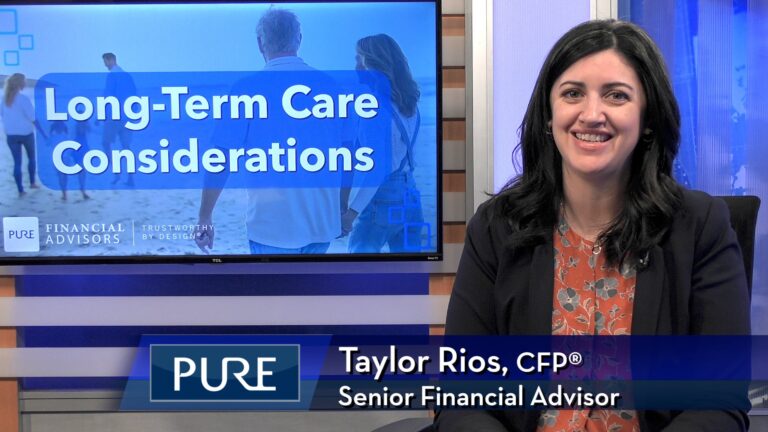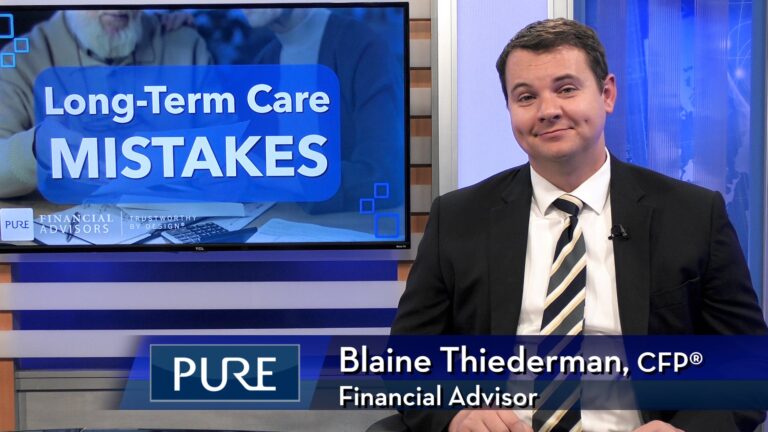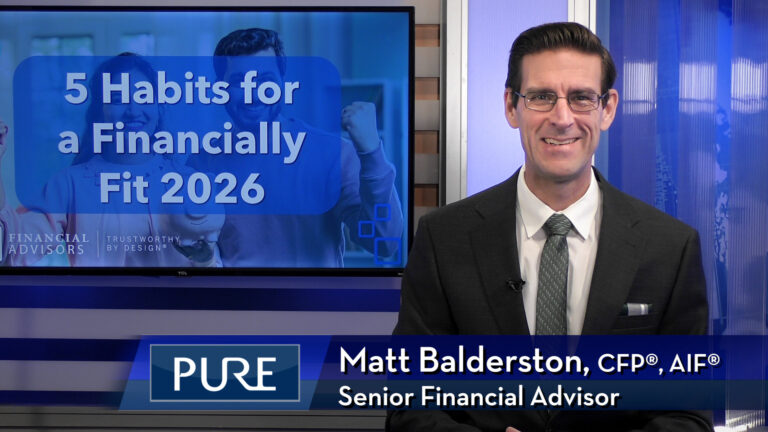Only 33% of U.S. adults have created estate planning documents1. While it’s understandable that estate planning can feel uncomfortable to think about—and even harder to discuss—it’s something you shouldn’t delay. Estate planning isn’t just for the wealthy or the elderly, it’s essential for everyone. Pure’s Senior Financial Advisor, Phillip Chinothai, CFP®, AIF®, outlines three key estate planning documents that can help you and your loved ones prepare for the future with confidence.
He discusses:
- A will
- Financial Power of Attorney Form
- Health Care Directive
Transcript
Did you know only a third of all Americans have an estate plan?1 That means the majority of people are leaving critical decisions about their money, their health, and even their family to chance… or worse to the hands of the government.
Now here’s a fact, estate planning isn’t just for the wealthy or the elderly. It’s for everyone. And today, I want to show you three essential documents that everyone can use to protect you and your loved ones, no matter your age or income.
First, we have the will. A will is a legal document that states who gets what when you pass away. Without one, your assets like your home, your savings, and even personal items could end up in the wrong hands creating additional stress and confusion for your family. A will lets you decide who inherits your things, who takes care of your children, and how your legacy is carried forward. Your family will still have to go through the probate court when you pass, but having a will makes the process more straightforward.
Next, we have the financial power of attorney form. This document essentially states who handles your finances if you can’t. Imagine a scenario of being in a serious accident and you’re stuck in the hospital suddenly unable to pay bills, manage investments, or make business decisions. A financial power of attorney form gives someone you trust the authority to step in and handle financial matters on your behalf while you are still alive. Without this, your family may need court approval just to access your bank or retirement accounts.
Along the same lines, a Health Care Directive or Living Will is used for health decisions. If you’re unconscious or incapacitated, who makes medical decisions for you? A health care directive (also known as a living will) spells out your medical wishes—like whether or not you want life support—and designates a trusted person to speak on your behalf. It gives you and your family peace of mind and avoids painful guessing games during emotional times. For these forms, you will be listing individuals who you trust the most to handle these circumstances. Now that we understand how important these forms are, let’s talk about what should you do next?
First, review what you already have: if you already have these forms established but it’s been a few years ago, they may need an update. You should likely go back to the same source who created your documents. If you don’t have these forms yet, schedule an appointment to talk to an attorney or use a trusted online platform to create these items. Most importantly, have a conversation with your loved ones. Make sure they know your wishes and where to find these documents in an emergency.
Don’t wait for a crisis to realize how important this is! Estate planning is a gift to those you care about most—and it starts with just three documents. If you would like more help with this or help with other financial matters, contact Pure for a free financial assessment
1 Legal Zoom, Estate Planning Statistics to Read Before Writing Your Will, January 2025.
Subscribe to our YouTube channel.
IMPORTANT DISCLOSURES:
• Investment Advisory and Financial Planning Services are offered through Pure Financial Advisors, LLC, a Registered Investment Advisor.
• Pure Financial Advisors LLC does not offer tax or legal advice. Consult with your tax advisor or attorney regarding specific situations.
• Opinions expressed are subject to change without notice and are not intended as investment advice or to predict future performance.
• Investing involves risk including the potential loss of principal. No investment strategy can guarantee a profit or protect against loss in periods of declining values.
• All information is believed to be from reliable sources; however, we make no representation as to its completeness or accuracy.
• Intended for educational purposes only and are not intended as individualized advice or a guarantee that you will achieve a desired result. Before implementing any strategies discussed you should consult your tax and financial advisors.
CFP® – The CERTIFIED FINANCIAL PLANNER® certification is by the CFP Board of Standards, Inc. To attain the right to use the CFP® mark, an individual must satisfactorily fulfill education, experience and ethics requirements as well as pass a comprehensive exam. 30 hours of continuing education is required every 2 years to maintain the certification.
AIF® – Accredited Investment Fiduciary designation is administered by the Center for Fiduciary Studies fi360. To receive the AIF Designation, an individual must meet prerequisite criteria, complete a training program, and pass a comprehensive examination. Six hours of continuing education is required annually to maintain the designation.












